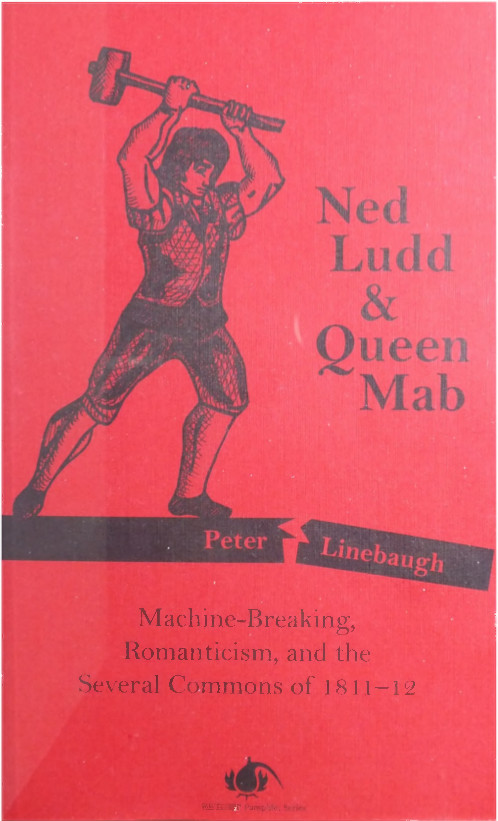William Davies (ed.) Economic Science Fictions (2018)
Filed under book | Tags: · automation, capitalism, dystopia, economics, economy, luddism, money, neoliberalism, science fiction, utopia

“From the libertarian economics of Ayn Rand to Aldous Huxley’s consumerist dystopias, economics and science fiction have often orbited each other. In Economic Science Fictions, editor William Davies has deliberately merged the two worlds, asking how we might harness the power of the utopian imagination to revitalise economic thinking.
Rooted in the sense that our current economic reality is no longer credible or viable, this collection treats our economy as a series of fictions and science fiction as a means of anticipating different economic futures. It asks how science fiction can motivate new approaches to economics and provides surprising new syntheses, merging social science with fiction, design with politics, scholarship with experimental forms.
With an opening chapter from Ha-Joon Chang as well as theory, short stories, and reflections on design, this book challenges and changes the notion that economics and science fiction are worlds apart. The result is a wealth of fresh and unusual perspectives for anyone who believes the economy is too important to be left solely to economists.”
Contributors: AUDINT, Khairani Barokka, Carina Brand, Ha-Joon Chang, Miriam A. Cherry, William Davies, Mark Fisher, Dan Gavshon Brady, Owen Hatherley, Laura Horn, Tim Jackson, Mark R. Johnson, Bastien Kerspern, Nora O Murchú, Justin Pickard, James Pockson, Tobias Revell, Judy Thorne, Sherryl Vint, Georgina Voss, Jo Lindsay Walton, Brian Willems.
Publisher Goldsmiths Press, London, 2018
ISBN 9781906897680, 1906897689
xiv+383 pages
Reviews: Anna Nguyen (LSE Review of Books, 2018), Justin Reynolds (New Socialist, 2018).
PDF (15 MB)
Comment (0)Matthew Wisnioski: Engineers for Change: Competing Visions of Technology in 1960s America (2012)
Filed under book | Tags: · 1960s, 1970s, activism, computing, education, engineering, history of computing, history of technology, labour, luddism, military, science, space, technology

“In the late 1960s an eclectic group of engineers joined the antiwar and civil rights activists of the time in agitating for change. The engineers were fighting to remake their profession, challenging their fellow engineers to embrace a more humane vision of technology. In Engineers for Change, Matthew Wisnioski offers an account of this conflict within engineering, linking it to deep-seated assumptions about technology and American life.
The postwar period in America saw a near-utopian belief in technology’s beneficence. Beginning in the mid-1960s, however, society—influenced by the antitechnology writings of such thinkers as Jacques Ellul and Lewis Mumford—began to view technology in a more negative light. Engineers themselves were seen as conformist organization men propping up the military-industrial complex. A dissident minority of engineers offered critiques of their profession that appropriated concepts from technology’s critics. These dissidents were criticized in turn by conservatives who regarded them as countercultural Luddites. And yet, as Wisnioski shows, the radical minority spurred the professional elite to promote a new understanding of technology as a rapidly accelerating force that our institutions are ill-equipped to handle. The negative consequences of technology spring from its very nature—and not from engineering’s failures. “Sociotechnologists” were recruited to help society adjust to its technology. Wisnioski argues that in responding to the challenges posed by critics within their profession, engineers in the 1960s helped shape our dominant contemporary understanding of technological change as the driver of history.”
Publisher MIT Press, 2012
ISBN 0262018268, 9780262018265
296 pages
via a2
Interview with the author (Carla Nappi, New Books in Science, Technology, and Society, audio, 1h)
Review (Caroll Pursell, The American Historical Review, 2014)
Review (Kevin T. Baker, The Sixties, 2013)
Review (Stephen H. Unger, 2013)
Peter Linebaugh: Ned Ludd and Queen Mab: Machine-Breaking, Romanticism, and the Several Commons Of 1811-12 (2012)
Filed under pamphlet | Tags: · 1800s, luddism, machine, romanticism

“Peter Linebaugh, in an extraordinary historical and literary tour de force, enlists the anonymous and scorned 19th century loom-breakers of the English midlands into the front ranks of an international, polyglot, many-colored crew of commoners resisting dispossession in the dawn of capitalist modernity.”
Publisher PM Press, Oakland, CA, 2012
Report Pamphlet Series, No. 001
ISBN 9781604867046
48 pages
review (Alan Brooke)
author’s lecture on luddism (audio)

